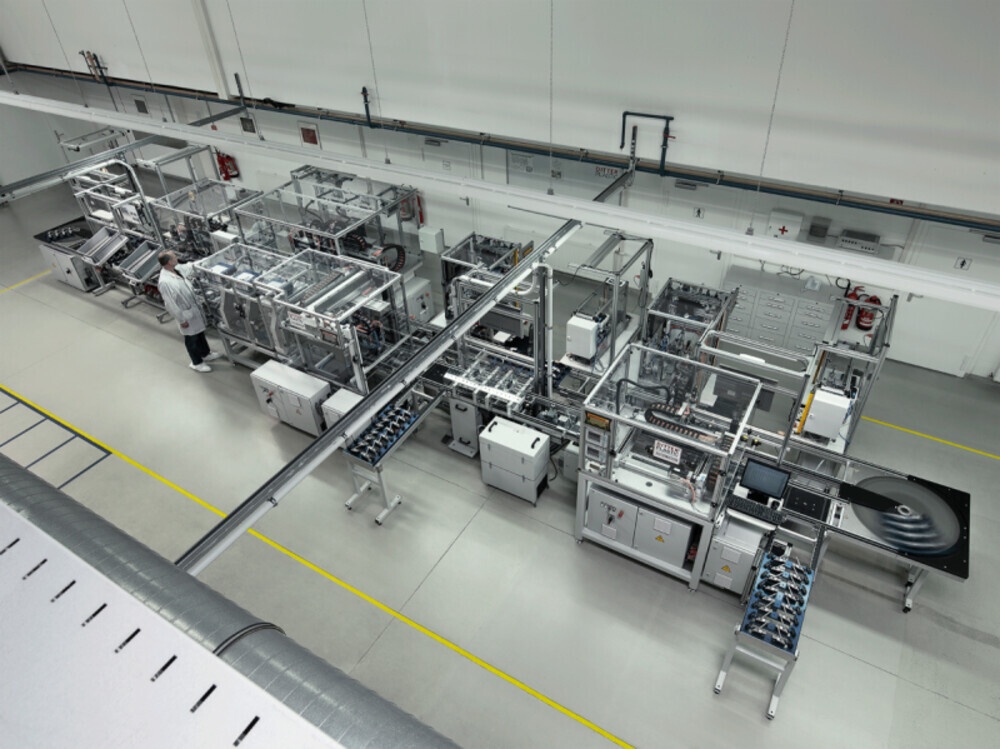Plastic automation systems are transforming the manufacturing industry by making it faster, more efficient, and cost-effective. These systems automate many processes in the production of plastic products, from material handling to quality control, thus reducing labour costs and human error. This blog post will explore how plastic automation systems revolutionise the manufacturing industry by improving efficiency, reducing costs, enhancing product quality, and increasing production capacity.
How Plastic Automation Systems are Revolutionising Manufacturing?
1. Improving efficiency
One of the significant benefits of plastic automation systems is that they can improve manufacturing efficiency. These systems are designed to automate repetitive tasks such as material handling, packaging, and labelling, which would otherwise require significant time and labour. By automating these tasks, manufacturers can save time, reduce labour costs, and increase production efficiency.
For example, automated systems can handle the entire production process in plastic injection moulding, from raw material handling to packaging and labelling. These systems can operate continuously, reducing production downtime and improving overall efficiency. Automated systems can also monitor production processes in real-time, quickly detecting and correcting errors and improving the product's quality.
2. Reducing costs
Another significant benefit of plastic automation systems is that they can reduce manufacturing costs. These systems can operate continuously, reducing the need for manual labour, which can be expensive. Automated systems can also reduce waste by accurately measuring and dispensing materials, ensuring every component is used efficiently.
Additionally, plastic automation systems can reduce the need for expensive and time-consuming quality control processes. Automated systems can detect and correct errors in real time, ensuring that every product meets the required quality standards. It reduces the risk of product recalls and the need for manual inspection, which can be time-consuming and costly.
3. Enhancing product quality
Plastic automation systems can enhance product quality by eliminating errors caused by human intervention. Automated systems can ensure that every product meets the required quality standards, reducing the risk of defects and product recalls. Additionally, automated systems can monitor production processes in real-time, detecting errors quickly and correcting them before they become significant issues.
Moreover, plastic automation systems can improve product consistency, ensuring every product is manufactured to the same specifications. It can enhance customer satisfaction by providing high-quality products that meet their requirements.
4. Increasing production capacity
Plastic automation systems can also increase production capacity by operating continuously and reducing downtime. Automated systems can handle repetitive tasks with greater speed and efficiency, meaning plastic machinery manufacturers can produce more products in a shorter time. Additionally, automated systems can be programmed to operate at different production speeds, allowing manufacturers to increase or decrease production as needed.
5. Flexibility in manufacturing
Plastic automation systems are highly flexible and can be customised to meet the unique requirements of different manufacturing processes. This flexibility means manufacturers can use automated systems to produce a wide range of plastic products, from small parts to large assemblies. Automated systems can also be easily reconfigured to accommodate changes in production requirements, making them ideal for plastic machinery manufacturers that need to adapt quickly to changing market demands.
6. Improved safety
Plastic automation systems can significantly improve workplace safety in manufacturing facilities. By automating repetitive and hazardous tasks, such as material handling and packaging, automated systems can reduce the risk of accidents and injuries in the workplace. Automated systems can also detect and alert operators to potential safety hazards, such as machine malfunctions, allowing them to take corrective action quickly.
7. Enhanced accuracy and precision
Plastic automation systems perform highly accurate and precise tasks. Automated systems can ensure the correct measurement, dispensation, and assembly of every component, which results in products that meet tight tolerances and exacting specifications. This level of precision is crucial in industries such as aerospace, medical devices, and electronics, where small variations can significantly impact product performance.
8. Data collection and analysis
Plastic automation systems can collect and analyse data from production processes in real time, providing valuable insights into performance, efficiency, and quality. This data can optimise production processes, reduce waste, and improve product quality. Automated systems can also identify trends and patterns in production data, allowing manufacturers to anticipate issues before they occur and take corrective action quickly.
9. Improved environmental sustainability
Plastic automation systems can help plastic machinery manufacturers achieve greater environmental sustainability by reducing waste and energy consumption. Automated systems can accurately measure and dispense materials, reducing waste generated during production. Automated systems can also optimise production processes to reduce energy consumption, resulting in lower greenhouse gas emissions and a smaller carbon footprint.
10. Increased reliability and consistency
Plastic automation systems perform tasks with a high degree of reliability and consistency. Automated systems can operate 24/7 without experiencing fatigue, reducing the risk of errors and defects in the production process. Additionally, automated systems can perform tasks with the same precision and consistency every time, ensuring that every product meets the same exacting standards.
11. Faster time-to-market
Plastic automation systems can significantly reduce the time it takes to bring a product to market. By automating the manufacturing process, manufacturers can produce products faster and with greater consistency, allowing them to meet tight deadlines and respond quickly to changes in customer demand. Automated systems can help manufacturers identify and resolve production issues faster, reducing delays and improving time-to-market.
Conclusion
Plastic automation systems offer numerous benefits to manufacturers, including improved efficiency, reduced costs, enhanced product quality, increased production capacity, flexibility, improved safety, enhanced accuracy and precision, data collection and analysis, increased reliability and consistency, and faster time-to-market.
By leveraging these benefits, manufacturers can stay competitive, meet customer demand, and achieve greater success in today's fast-paced and rapidly changing manufacturing environment. As automation technologies advance, we can expect to see even more innovative solutions that will transform the manufacturing industry in exciting and unexpected ways.


No comments yet